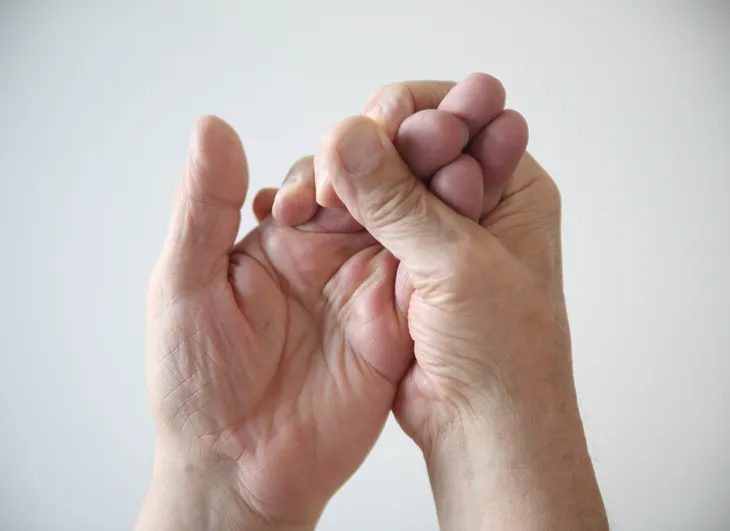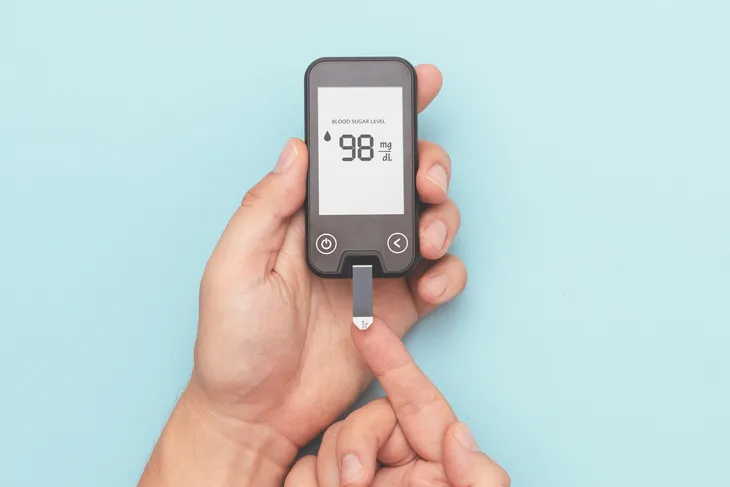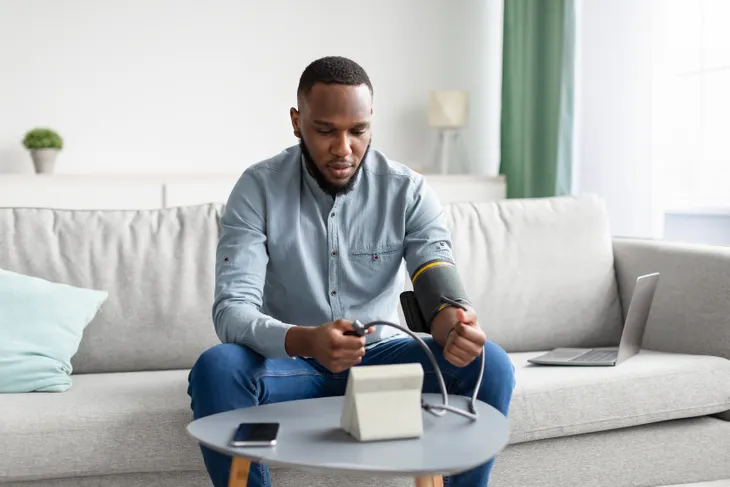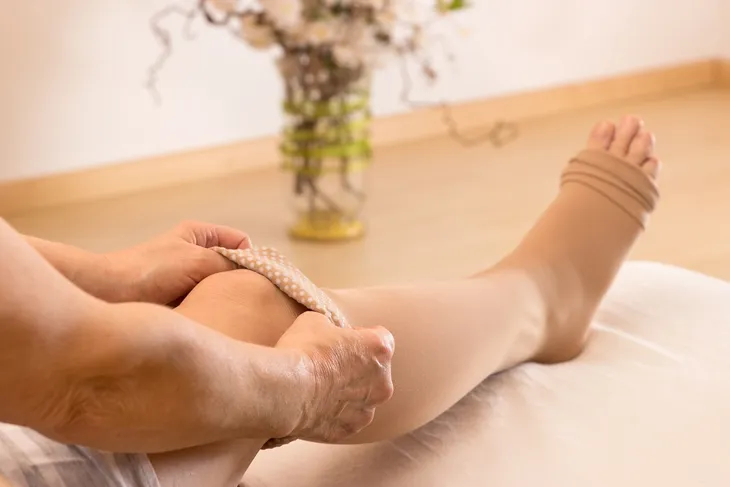Proper blood circulation is essential for maintaining good health. Not only does circulation help ensure that blood and oxygen are flowing throughout your body, but it’s essential for optimizing organ function too. Good circulation also helps keep your heart healthy, brain sharp, and helps heal wounds fast. As you can see it’s vital that your blood is circulating properly.
So what if you have poor blood circulation? Are there ways you can improve it? It turns out you can! So, let’s take a look at some ways you can improve your blood circulation.
Signs of Poor Circulation
Before we dive into what you can do, it’s first important that you can spot the signs of poor blood circulation. One of the first signs you may notice is cold or numb feet and/or hands. If you have fair skin, you may notice that the skin on your legs develops a blue tinge.
Poor circulation can also cause hair loss, brittle nails, and dry skin. Finally, if you have diabetes, another sign of poor circulation is slow-healing wounds. So now that we know what to look for, let’s take a look at what you can do about it.
Exercise Regularly
It’s no secret that exercise is good for your health from maintaining a healthy weight to improving your mood and energy levels. But it turns out, exercising has benefits for your blood circulation too. When you exercise, your muscles require more blood flow which provides oxygen as well as other essential nutrients.
Prevention says walking specifically can benefit both arteries and veins as venous blood is pushed back up to the heart when the calf muscles contract. That said, the source notes any sweat session will do. Try to aim for at least 20-minutes of cardio four to five times per week for optimal benefits!
Practice Yoga
Speaking of exercise. Yoga is another notable form of exercise that can help improve blood circulation. Many of the movements you go through during yoga will promote oxygen to your cells and send blood to your organs, says WebMD.
The source also notes upside-down positions help shift blood from your bottom half up towards your heart and brain — another great way to promote blood circulation. Better yet, yoga is a low-impact form of exercise making it great for every age.
Stay Hydrated
Hydration is so important for your health and it plays a role in blood circulation. After all, your blood is half water which is why it’s so important to stay hydrated to keep it moving effectively.
Dehydration can slow blood circulation and it makes your blood retain more sodium “causing it to thicken and making it that much harder for your circulatory system to do its thing,” says Prevention.
So, how much water should you really be drinking? WebMD notes, “in general, you should try to drink between half an ounce and an ounce of water for each pound you weigh, every day.”
Quit Smoking
If you haven’t been convinced to quit yet, perhaps knowing that quitting can benefit your circulatory system. The reason smoking can hinder your circulatory health is because the active ingredient in cigarettes can harm the walls of your arteries and it can thicken your blood to the point where it can’t get through.
With this in mind, if you smoke, it’s time to quit. While it can definitely be a challenge there are support groups, medications, and the guidance of your doctor that can help you along the way.
Take More Breaks at Work
It’s easy to get into the zone while working and forget to take breaks but taking breaks throughout the day will not only benefit your mental health but your circulatory health too. Making it a habit to switch from sitting to standing and walking can help promote blood flow.
Try to take a quick stretching break every 20-minutes or so throughout the day. You should also consider going for a walk during your lunch break and after work to stretch your legs and to get your blood moving.
If taking more breaks during work isn’t an option, you might want to consider investing in a standing desk. It may take you a bit to get used to it but standing at your desk instead of sitting for hours will encourage the valves in your leg veins to work hard and send blood up to your heart.
Increase Your Fruit and Veg Intake
Eating a healthy well-balanced diet can only do good for your body including your circulatory system. Be honest with yourself, are you getting enough fruits and vegetables every day? If not, it might be time to make some dietary changes.
WebMD says you should steer clear of saturated fats, too much salt and instead increase your fruit and veggie intake. A healthy diet will help you manage a healthy weight, cholesterol levels, and help you manage your blood pressure — all important elements of keeping your arteries clear and healthy.
Drink Green Tea
If you’re looking for an afternoon pick me up, consider green tea. It turns out it may improve blood vessel function too due to compounds called catechins. Dr. Patel tells Prevention, “Catechins have been shown to inhibit oxidation (an imbalance of free radicals and antioxidants in the body), decrease blood vessel inflammation, as well as arterial plaque buildup.”
Some believe green tea can help relax the blood vessels allowing the body to pump blood more easily. That said, more research is needed to prove this theory.
Manage Your Blood Sugar
Managing your blood sugar is important, especially for diabetics. Over time, elevated glucose levels can cause damage to the blood vessels and nerves that control your heart. This can cause trouble with your circulation.
Prevention also points out that diabetes can promote the formation of plaque in the body which can increase your risk for peripheral artery disease. To control your blood sugar levels, be sure to monitor your diet and consume foods that can help lower your blood sugar such as leafy greens, lean proteins, and whole grains.
Control Your Blood Pressure
Your blood sugar levels aren’t the only thing you should monitor. If you want to improve blood circulation, you should also manage your blood pressure. High blood pressure can lead to arteriosclerosis which is a condition that occurs when your arteries harden, blocking blood flow.
So what should your blood pressure be? Adults should aim for 120 over 80 (or less), but it’s best to check in with your doctor to find out the recommended numbers for your age and health. You can buy a home blood pressure monitor online or at your local pharmacy. Ask your doctor how often and when you should take your blood pressure.
Consider Compression Socks
A simple yet effective way to help promote blood circulation is to wear compression socks. Wearing compression socks helps put a bit of pressure on your legs which encourages the blood to move back up to the heart.
As an added bonus, compression stockings can also help prevent varicose veins and spider veins. They’re easily available at many pharmacies and online stores but it’s best to first ask your doctor what length and what amount of pressure is best for you.
Elevate Your Legs
Another simple way to improve blood circulation is to elevate your legs. By elevating your legs at or above heart level, you’ll discourage blood from pooling in your legs, and instead, encourage it to flow to the rest of your body. Elevating your legs also relieves pressure off your veins.
So, the next time you’re watching tv lay on the floor and elevate your legs against a wall for 15-minutes or more. You can also elevate your legs while napping by placing a pillow under your legs to hold the position.
Get a Massage and Dry Brush
In case you need another reason to book a massage, add improving blood circulation to the list! Massages are great because they provide relaxation and relief from daily stress while at the same time stimulating your body’s blood flow.
In between your massage appointments you should also consider adding dry brushing to your daily routine. Dry brushing involves using a stiff brush with natural bristles and stroking your skin in upward circular motions. Start with your feet and work your way upward. Dry brushing also exfoliates the skin so consider doing it right before your shower.
Take a Bath
Baths can be relaxing but it turns out they may also promote blood circulation. WebMD notes it is a temporary fix but nonetheless worth noting.
The source says, “warm water makes your arteries and veins open a bit wider, letting more blood through.” So draw yourself a warm bath, sit back and relax!
When to See a Doctor
As we know, good blood circulation is vital for your health so if you develop any signs of poor circulation you must book an appointment with your doctor. If left untreated, it can lead to life-threatening complications such as blood clots.
At your appointment, your doctor will be able to give you a proper diagnosis using a variety of tests. Once a diagnosis is confirmed they’ll provide you with a treatment plan and likely suggest some lifestyle changes.


















